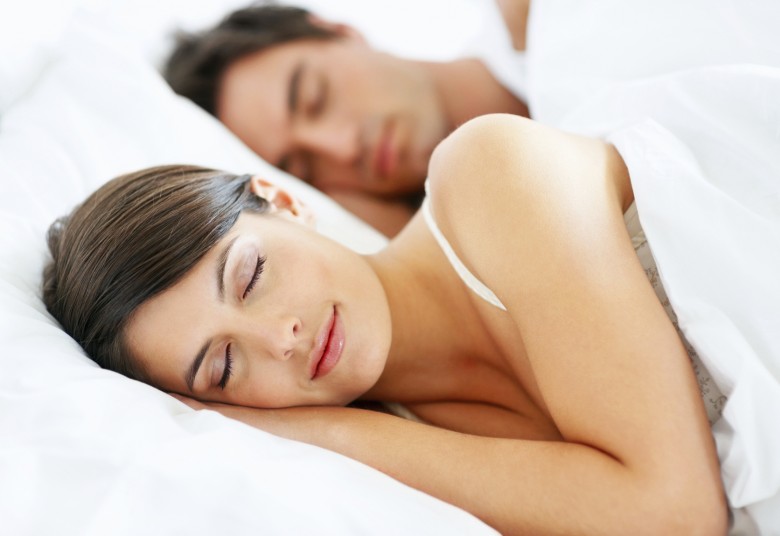The effect of Vitamin D on your sleep
It is always a good idea to have your vitamin D levels checked, especially if you notice you have insomnia, gained weight, have strange muscle aches or joint pain, are often tired during the day, need several caffeinated drinks to function or are having symptoms of depression. People in the medical community often don’t recognize the link between depression and lack of vitamin D and instead of focusing on vitamin deficiencies, will prescribe drugs to treat depressive symptoms or insomnia. Since depression can play a major role in sleep disorders, vitamin D can help several symptoms along the same spectrum. When we don’t get enough good quality sleep, there is no question that your physical body, mood and entire well-being suffers. Lack of REM sleep can lead to serious health conditions including hypertension, heart disease, cancer and stroke.
If you have enough vitamin D in your body and you keep your bedroom completely dark, you will produce melatonin while you sleep. It is important to keep the tv or computer off, since studies have found even a small amount of light disrupts your body’s natural ability to produce melatonin. Melatonin helps your body go into REM or the stage of sleep known as rapid eye movement; it is during this stage that you will have the most dreams and your body’s natural healing processes can begin. Since vitamin D helps the body produce melatonin, there is no need for melatonin supplements if you are getting enough vitamin D.
People think that we get sufficient amounts of vitamin D from the sun, but the truth is many people don’t. If you work indoors you probably don’t get enough sun for your body to produce this often underestimated but so important hormone. If you tend to be more of a night owl, you also might be at risk of having low vitamin D levels. Or maybe you are on a dairy-free or vegan diet, which limits the amount of vitamin D from foods since egg yolks, meat and dairy contain some amounts of vitamin D but not nearly enough for for your daily intake. To get your intake from the sun, you have to sit outside for half the time it takes before you begin to burn and with all of the risks from too much sun exposure, many people would rather go for the supplements. The darker your skin is, the more likely you will need a vitamin D supplement, since melanin reduces the amount of vitamin D your body produces and the older you are, the slower the body gets at producing what it needs.
Vitamin D3, also known as cholecalciferol is the best supplement to take and comes from lanolin (wool grease) or fish organs. The supplements come in capsule and tablet form, and either as an oil or in a vegetable base. In order to properly absorb vitamin D, you have to be eating a well-balanced diet with sufficient amounts of magnesium and vitamin K. You can find vitamin K1 in green leafies like kale, chard, spinach or wheatgrass. Vitamin K2 comes from proteins, especially liver, eggs and hard cheese. Sure, your body will produce vitamin D if you’re outdoors on a sunny day and fully exposed, like you are on the beach, however you would need to do this daily for the amount of time it takes for your skin to turn half a shade darker or pink, whichever comes first. However, the time involved in going to the beach daily with perfect weather conditions is just not realistic for most people. Eating magnesium-rich foods like legumes, broccoli, nuts and avocados will also help prevent leg cramps and headaches some experience when first starting vitamin D supplementation. Magnesium also helps to balance your calcium levels which is good for your heart.
There are numerous reports and testimonials online by people who swear that supplementing with vitamin D3 helps them to sleep deeper, longer and feel well-rested each day. It takes time for your body’s levels to adjust to your final dosage so don’t expect immediate results. Its also a good idea to take the vitamin D3 in the morning, since it temporarily cuts off melatonin production; this way, once its time for you to sleep, your body can produce melatonin at optimal levels.
The FDA recommends a vitamin D daily requirement of 400-800IU per day; a fairly low range adequate enough for good sleep and low enough to avoid accidental vitamin D overdose. Too much vitamin D can cause hypercalcemia, which can result in constipation, kidney stones and bone pain. Symptoms of hypercalcemia include excessive thirst and increased urination. Its best to talk to your doctor first about taking the vitamin D test, also known as the 25(OH)D level test to see where your levels fall. This way you can determine what dosage you need since everyone absorbs vitamin D differently and some may need more than others. For those without health insurance, The Vitamin D Council offers tons of up-to-date information about vitamin D as well as vitamin D testing for a fee less than a doctor’s visit.
Who knew that vitamin D could really have that much of an effect on sleep and sleep disorders? If you haven’t tried it yet, its definitely something worth looking into. The power of a good night’s rest does not have to be a daydream anymore; with vitamin D you could likely turn that dream into reality.
